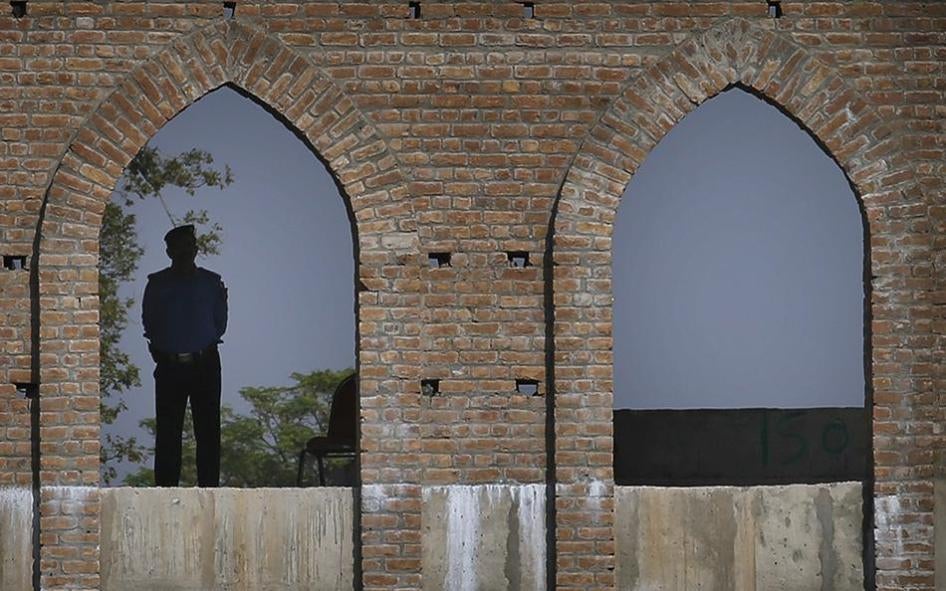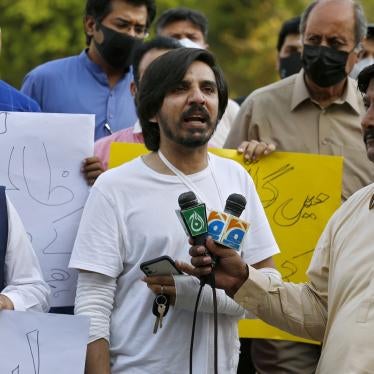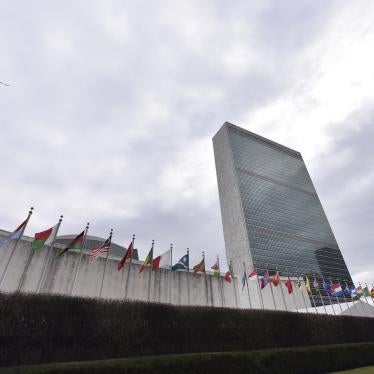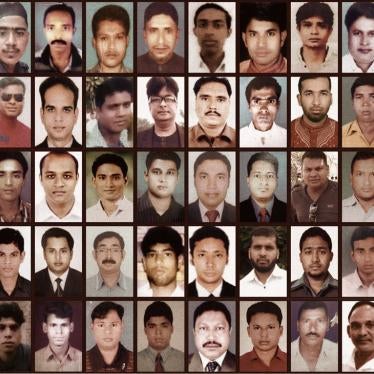(New York) – Pakistan’s National Assembly should urgently pass a bill that would make torture a criminal offense, Human Rights Watch and Justice Project Pakistan said today. The Torture and Custodial Death (Prevention and Punishment) Act 2019, which the Senate unanimously approved on July 12, 2021, is critically important for protecting detainees from torture and death in police custody.
If passed, the bill, submitted by Senator Sherry Rehman and supported by the federal minister for human rights, Dr. Shireen Mazari, would, for the first time, outlaw torture by Pakistani police.
While Pakistan’s Constitution prohibits the use of torture “for extracting evidence,” no domestic law makes torture a criminal offense. Pakistan is a party to international human rights treaties, including the United Nations Convention Against Torture, that prohibit the use of torture and other ill-treatment.
“Pakistan needs to reform its police to end abuse and protect detainees from mistreatment,” said Brad Adams, Asia director at Human Rights Watch. “Passing the anti-torture bill would be an important first step.”
Human Rights Watch has long documented the widespread use of torture and other ill-treatment by the Pakistani police during criminal investigations. Criminal suspects from marginalized groups are at particular risk of police abuse. Police typically use torture to obtain confessions and other information from suspects, or to extract bribes from those arbitrarily detained. Officials claim that the police resort to physical force because they are not trained in sophisticated methods of investigation and forensic analysis, but often police use torture to punish detainees and obtain quick convictions.
Methods of torture include beatings with batons and littars (leather straps), stretching and crushing legs with roola (metal rods), sexual violence, prolonged sleep deprivation, and causing severe mental anguish, including by forcing detainees to witness the torture of others.
Pakistan promised to define and criminalize torture in its June 2020 pledge as part of its candidacy for the United Nations Human Rights Council. In February 2020, the European Commission’s GSP+ assessment report, for the program that provides trade preference to eligible countries, from 2018-2019 said: “Pakistan’s legislation falls short of a law specifically defining torture and fails to explicitly criminalize torture as required under the Convention Against Torture.”
“It is high time that Pakistan outlaws a practice that taints every facet of the criminal justice system,” said Sarah Belal, executive director of Justice Project Pakistan. “The unanimous passing of this landmark legislation by the Senate indicates the broad political consensus to criminalize torture.”
The Senate bill adopted provides a comprehensive definition of torture in line with article 1(1) of the Convention Against Torture and includes both physical and psychological torture. Torture would be punishable by three to ten years in prison. The bill provides criminal liability for public servants who have a duty to prevent the commission of torture and “intentionally or negligently” fail to do so and for public servants who incite or instigate torture.
The bill also makes it a criminal offense to cause a person’s death “directly or indirectly … by and substantially attributable to acts committed upon the deceased while in custody or after his release from custody.” It includes death in police, private, or medical premises, in a public place, in a police or other vehicle, or in jail. It also includes death while a person is being arrested or taken into detention or being questioned. The proposed law also criminalizes acts of sexual violence committed in custody, including “rape or sexual abuse” or “any kind of sexual violence on a person ... irrespective of the sex and gender of the perpetrator or the victim.”
“The rule of law won’t become a reality in Pakistan unless the police tasked with imposing the law are also held to it,” Adams said. “Pakistan’s National Assembly should pass this law and start the long overdue process of reforming the criminal justice system."









